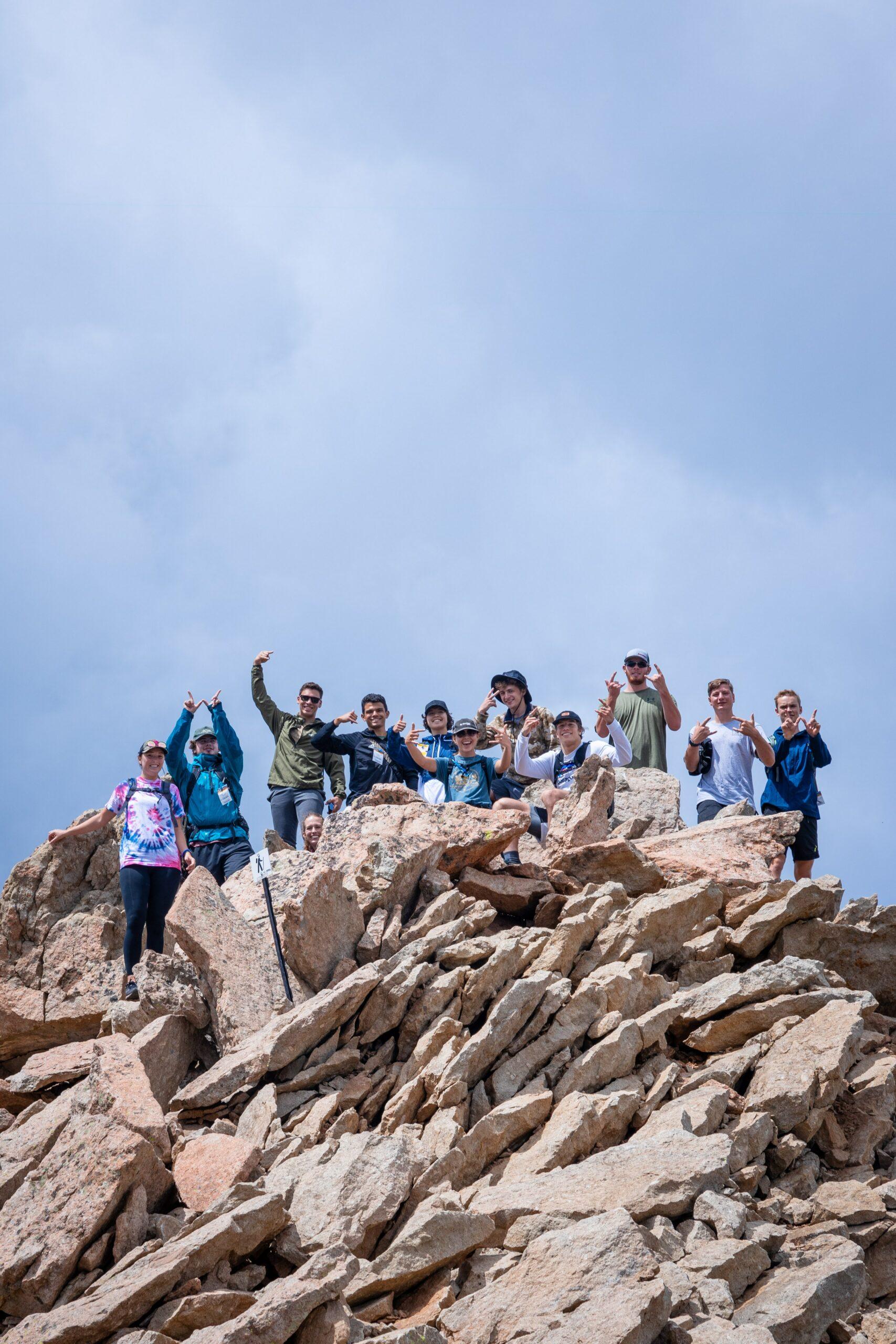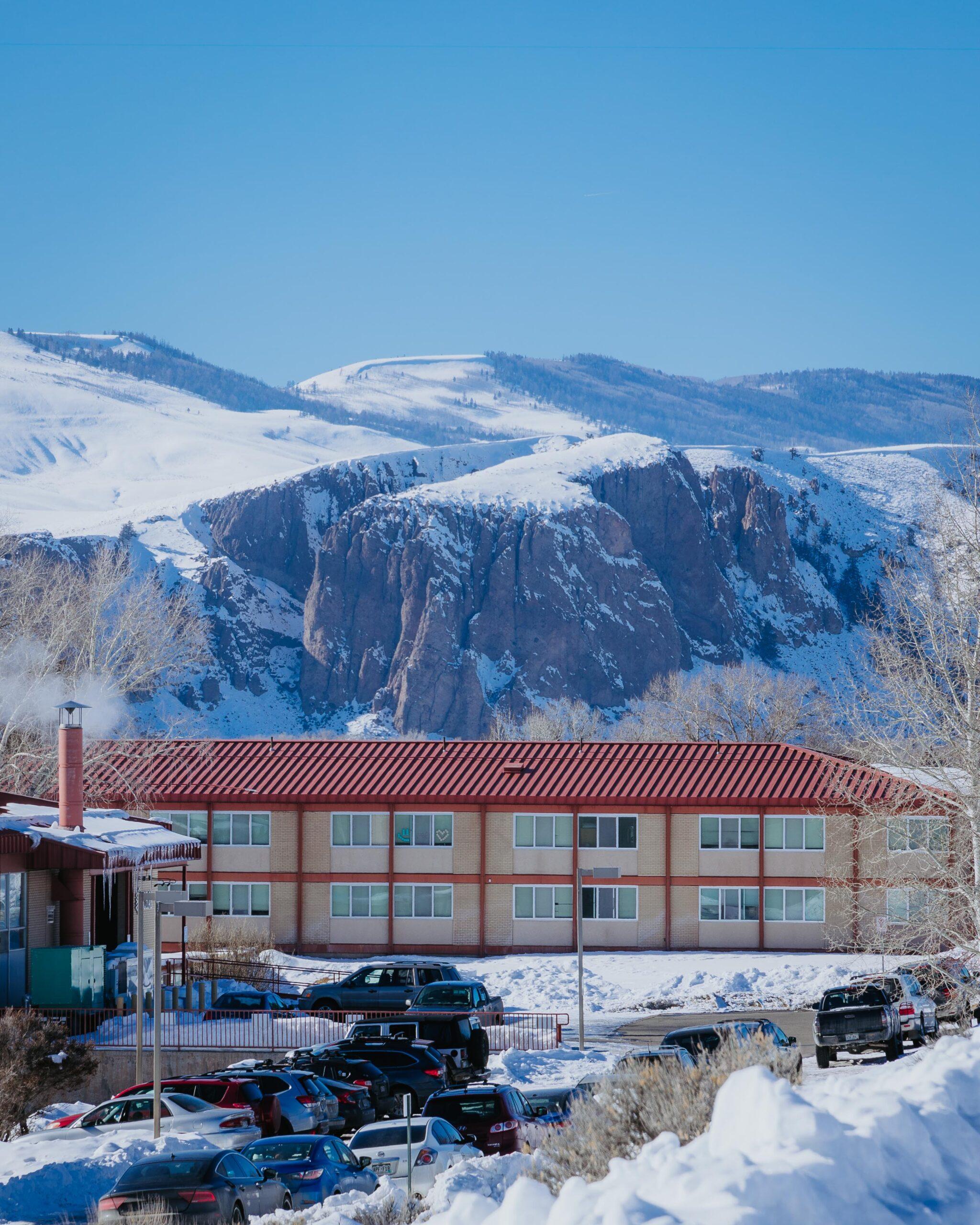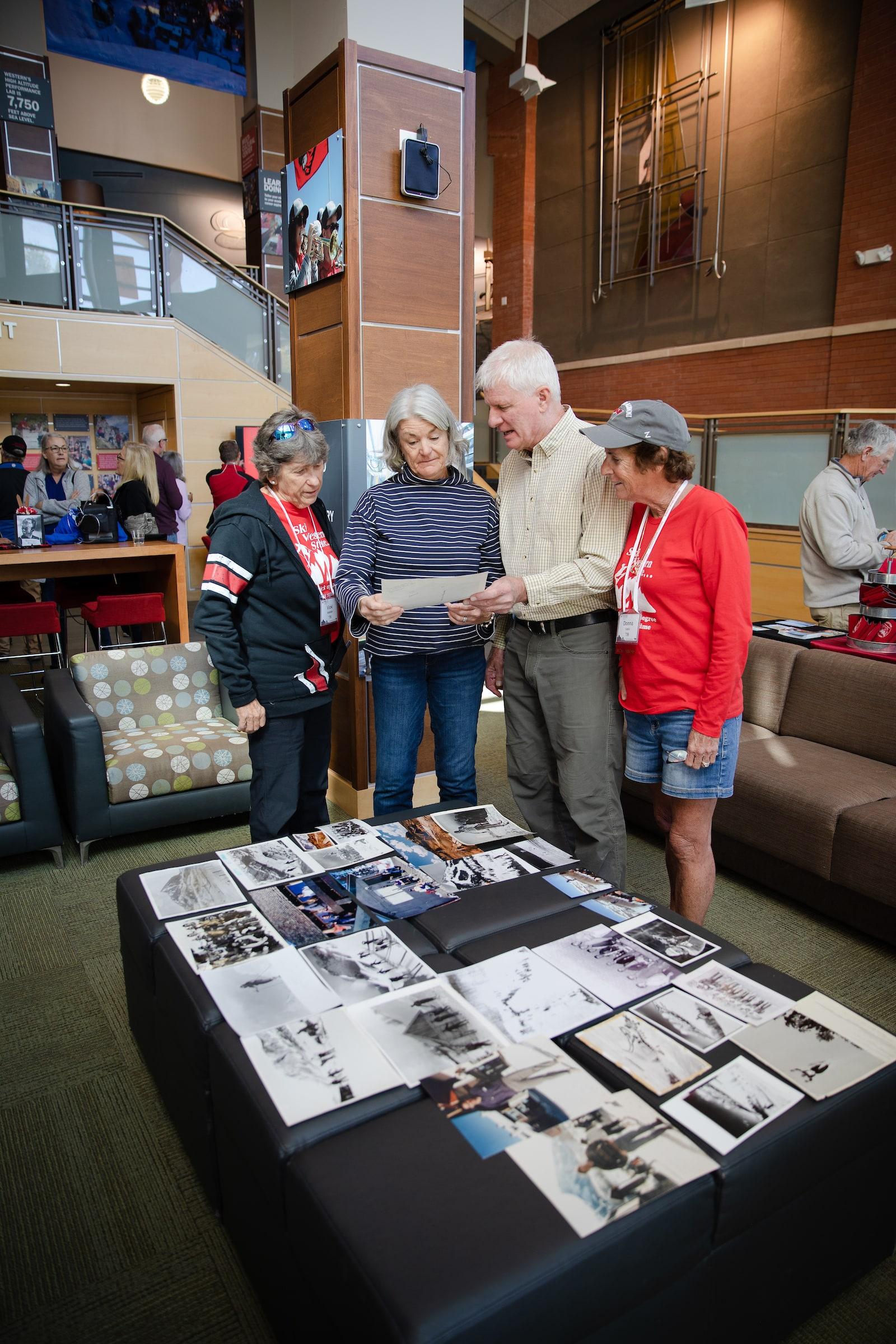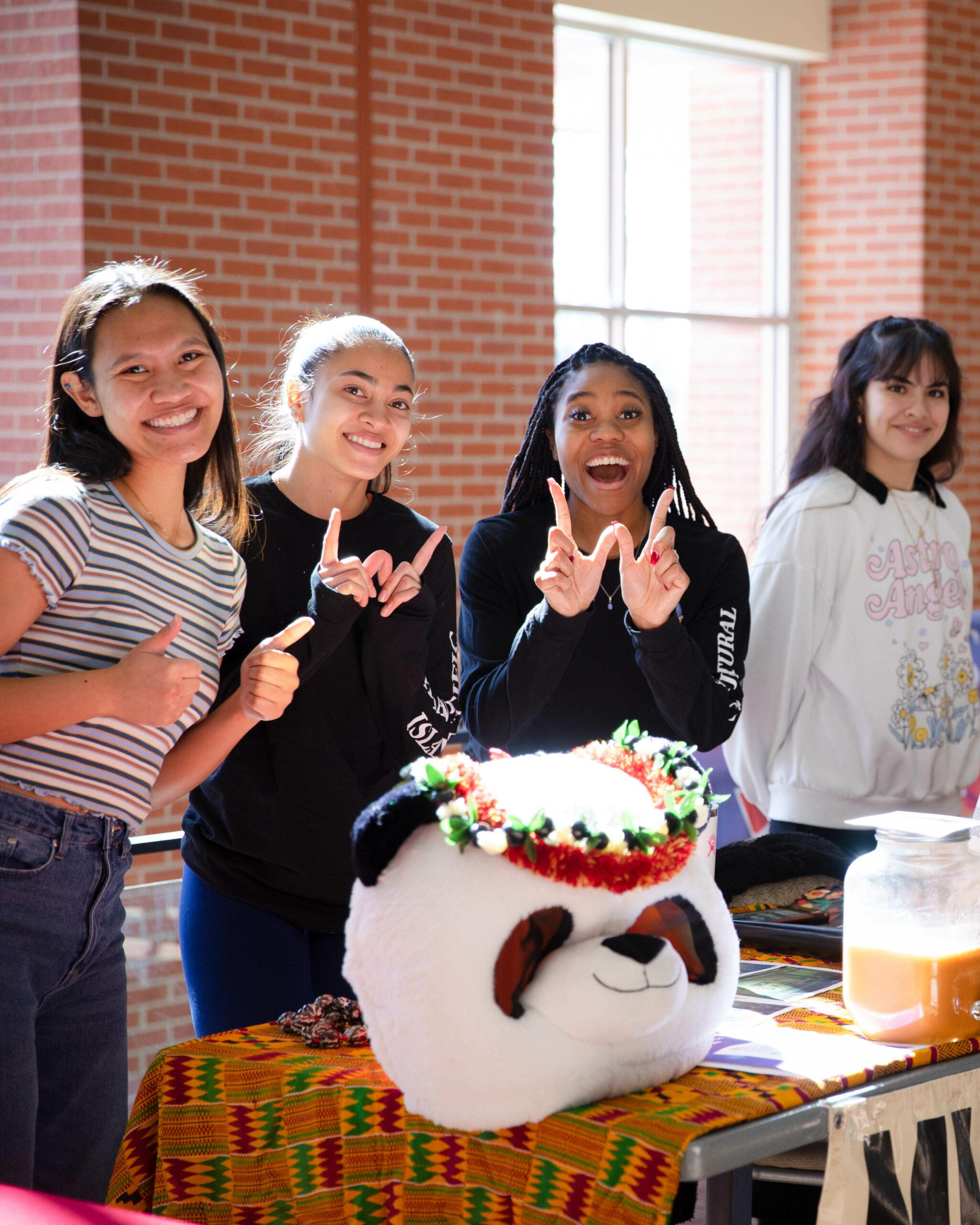Professional Development for Western Graduate Students
The School of Graduate Studies seeks to help students achieve their professional potential both in and out of the classroom. Because this enduring task must be tailored to, and work for, a wide array of backgrounds and needs, the School of Graduate Studies has assembled a menu of resources.
Please contact graduatestudies@western.edu for more information.
-
-
-
-
Funds for Scholarly Travel
These funds support individual graduate students invited to attend or present their research or work at a conference or meeting by covering the cost of registration, lodging, meals and/or transportation. The maximum grant is typically $500. Preference is given to students in programs with limited financial resources for this type of activity and to students whose work is not already supported by a faculty research grant that may provide similar funding support.
All available funds are normally allocated during each review period, and therefore requests received after the deadlines are not usually considered. However, if funds remain for that funding period, late requests may be considered.
-
Professional Development Travel Funds
This fund supports individual graduate students who wish to attend professional development workshops or programs of a professional interest that are not venues for the students to present their own research or scholarly work. Maximum grant is typically $500.
All available funds are normally allocated during each review period, and therefore requests received after the deadlines are not usually considered. However, if funds remain for that funding period, late requests may be considered.
-
Funding for Interdisciplinary Symposia, Seminars and Workshops
This fund supports groups of students who wish to organize symposia, seminar series and workshops. The maximum grant is typically $2,000. The fund’s intent is to encourage student-initiated events that enrich the Western graduate student experience by providing opportunities to present ideas and research to audiences across disciplines. Students should participate as presenters, speakers and moderators, as well as organizers. Successful proposals might include, for example, symposia that expose the work of graduate students to groups outside the University, workshops that bring faculty and students from other campuses to interact with Western students on a focused topic, or works-in-progress colloquia. Preference will be given to interdisciplinary programs that provide students the opportunity to engage with others outside their discipline.
Funds may be used for reimbursement of reasonable event related expenses. The School of Graduate Studies policy is to reimburse for expenses up to the awarded amount. Students who have been awarded with funding for interdisciplinary symposia, seminars or workshops may choose the frequency in which they submit receipts. Funding may not be used to compensate student(s) for services related to work.
Proposals are reviewed twice per year.
-
Funding for Professional Development Initiatives
This fund supports graduate programs and groups of students in receiving professional development through their own initiatives. Maximum grant is typically $2,000. The fund’s intent is to encourage graduate programs and students to pursue professional development experiences that will enrich the student experience and prepare students for careers after graduate study. Funds may be used for programming and events that fill a professional development need not currently met through the department or other campus resources. Proposal could include, for example, industry networking events, alumni panels on careers, and group workshops on transferable skill development.
Awards may be used to fund:
- Honoraria and/or travel costs for guest speakers
- Operational costs (refreshments, food, room and equipment rental, etc.)
- Publicity and/or printing
The School of Graduate Studies policy is to reimburse for expenses up to the awarded amount. Students who have been awarded funding for a professional development initiative may choose the frequency in which they submit receipts. Funding may not be used to compensate student(s) for services related to work.
Proposals are reviewed twice per year.
-
-
-
Applying for Travel Funds
should be submitted to the School of Graduate Studies (graduatestudies@western.edu) by 5:00 p.m. on the day of the submission deadline. Proposal documents should be submitted as a single PDF file and must include the following:
-
-
- Summary Page. This form requires the signatures of your graduate advisor/mentor and program director.
- Narrative. Briefly describe (not to exceed one page in length) the purpose of the travel and the benefits to you and/or the graduate program.
- Budget. Please include a detailed budget. The budget must include all expenses and include other sources of funding subsidizing your activity. The amount and the source of available matching or in-kind contributions must be documented.
-
Applying for Funding for Professional Development Initiatives or Interdisciplinary Symposia, Seminars, and Workshop
Proposals submitted to the School of Graduate Studies (graduatestudies@western.edu) by 5:00 p.m. on the day of the submission deadline. Proposal documents should be submitted as a single PDF file and must include the following:
-
-
- Description and Event Details
Provide a description of the proposed program(s) or event(s).
Include plans for timing of events, location and number of graduate students likely to participate. Explain what successful event attendance would look like for this type of program (e.g., number of graduate students attending, number of faculty attending, graduate programs represented, how distance students will be served, etc.).
Provide a marketing plan for the event or series. - Key Personnel
Name those individuals who will be responsible for planning and logistics of the program or event, and indicate their roles in the process.Identify any other campus partners or resources that may be useful in making the event successful. - Need and Impact
Explain the need for the event and the intended impact on graduate student professional development or academic experience.
Identify existing programming and resources the program currently provides to support graduate students.
Explain the potential for long-term impact beyond the award period. - Budget
Include a detailed budget for how funds will be spent.
List other anticipated sources of funding for the program. - Interdisciplinarity
Will the program(s) be open to students from more than one department/program?
If so, how will events be marketed to students across programs/departments? - Assessment
How will you measure the event/series’ success? (Examples: total number of attendees, proportion of department faculty attending, an average evaluation rating of at least 4 on a 5-point Likert scale, etc.)
All events/series funded by this grant should include participant evaluation feedback. Include the evaluation instrument you will use.
- Description and Event Details
-
Resume Guide
A resume is the unique professional summary you will build upon your whole life. Employers read it to evaluate your experience, skills and achievements. The primary goal of your document is to communicate why you are qualified for the position you are seeking.
Where to start?
-
-
- Brainstorm: Focus on your experiences that are most relevant to the position: work, internships, practicum, academic, research, project-based, extra-curricular and leadership-based.
- Format: Craft a one-page document unless you exceed five years of professional work experience. Do not be tempted by the convenience of a template or wizard! Start with a blank Word document and build your resume line-by-line. Assume a clean, consistent look: 10-12 point font, 0.75”-1” margins all around.
- Content: Use action verbs to grab the reader’s attention. Avoid passive language, such as “duties include.” Quantify and qualify your experiences to convey the complexity of tasks. Include accomplishment statements that demonstrate the results of your efforts. Avoid clichés and vague or empty descriptors. Include relevant master degree coursework, thesis title, publications, student assistantships, internships, course project work and examples of leadership. Include relevant professional associations and certification
- Heading: Your heading will contain your name and basic contact information. An email address and contact number are standard. Mailing address has long been a resume staple, but in the era of digital communications, it is increasingly common not to include a postal address. You may also include a link to your LinkedIn profile or online portfolio. This heading should match exactly the heading on your cover letter and reference sheet.
- Categories: Three to five is the norm. EDUCATION (at top), WORK EXPERIENCE, LEADERSHIP, SKILLS. You will list your experiences in each category in reverse chronological order. Within each job, you will author three to five relevant bullets in descending order of importance. Consider beginning with a scoping sentence—your 10,000-foot view of your role.
- Visit the Resume Checklist
-
Cover Letter Guide
Your cover letter invites the hiring committee to read your resume and tells them why you are the best person for the position. It also may cover high-level information or relevant specifics that you might want to give extra attention.
-
-
- Compose: Prepare to write your cover letter by highlighting aspects of a job description you are qualified to perform. Jot down examples of work, volunteering, coursework, etc. Tell a story that shows how you match the job requirements.
- Format: Use the same header, font and margins as your resume. Use formal salutations. Single space paragraphs with a double space in between are recommended. One page is usually sufficient.
- Content: Consider a three- to five-paragraph letter with an introduction that connects you to the reader, middle paragraphs that feature experiences that match what the employer is seeking and a closing paragraph that indicates how you will contribute.
- Tone: Adopt a tone that mirrors the organization’s culture. Highlight strengths without embellishing.
- Proof: Print, check and read your letter out loud. Have at least two peers read your cover letter and resume for errors.
- More Helpful Links
- Cover Letter Workshop via Purdue Online Writing Lab (OWL)
- How To Write a Cover Letter: 31 Tips You Need to Know via The Muse
- How To Write a Cover Letter & 40+ Free Templates via Resume Genius
- How To Write a Cover Letter via CareerMatch
-
Resources for marketing yourself
Build a great LinkedIn profile to network and build your professional brand. LinkedIn has created targeted videos, handbooks and one-sheets just for students.
Take the Next Step

Apply to Western
We understand that applying to a university can be daunting, which is why we make our admission process as simple and straightforward as possible. Learn more about applying to your program of choice at Western.

Visit Western
The best way to find out what makes Western such a special place is to experience it for yourself. Our student-led tours give you an insider’s perspective on everything from academics to student life.

Alumni Community
We keep the Mountaineer spirit going strong within our alumni community. Whether getting together with friends at an annual event, making a donation or mentoring a student, graduates continue to play an important role in the Western community.

Request Information
Want to discover more about Western? Request information today to get in touch with the admissions team.
